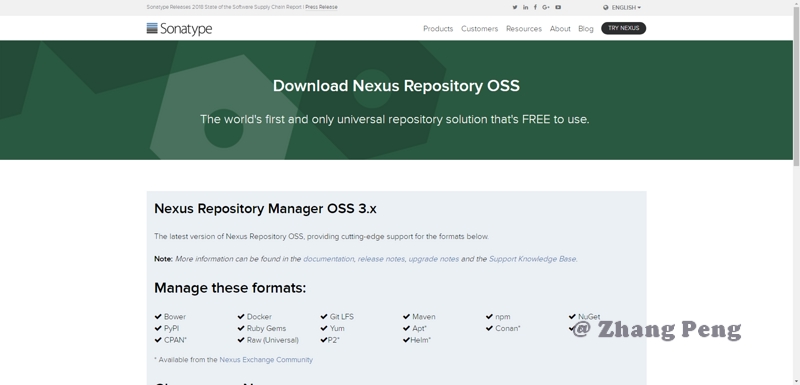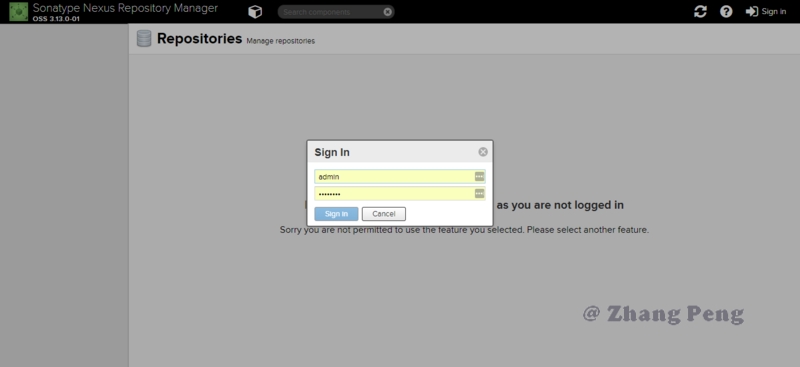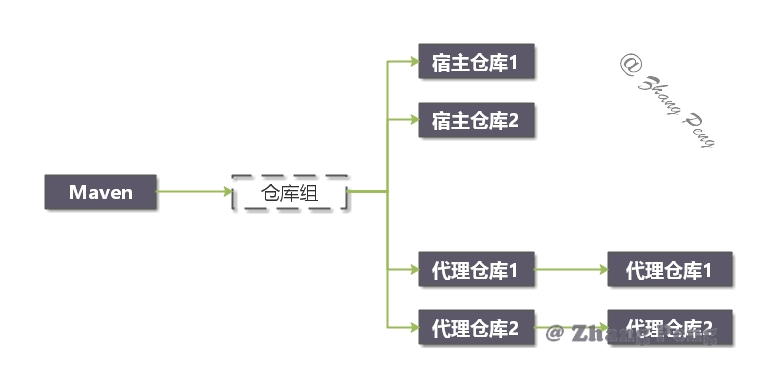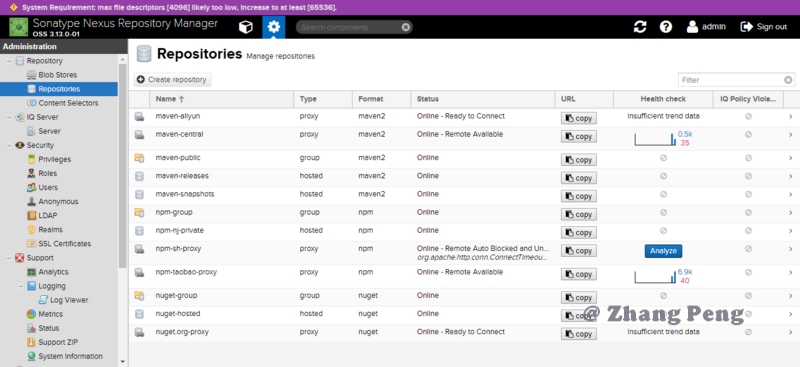Nexus 运维
Nexus 是一个强大的 Maven 仓库管理器,可以用来搭建 Maven 私服。
关键词:maven, nexus
部署环境
Nexus 3.13.0
JDK 1.8
Maven 3.5.4
1. 安装 Nexus
进入官方下载地址,选择合适版本下载。

本人希望将 Nexus 部署在 Linux 机器,所以选用的是 Unix 版本。
这里,如果想通过命令方式直接下载(比如用脚本安装),可以在官方历史发布版本页面中找到合适版本,然后执行以下命令:
解压后,有两个目录:
nexus-3.13.0-01 - 包含了 Nexus 运行所需要的文件。是 Nexus 运行必须的。
sonatype-work - 包含了 Nexus 生成的配置文件、日志文件、仓库文件等。当我们需要备份 Nexus 的时候默认备份此目录即可。
2. 启动/停止 Nexus
进入 nexus-3.13.0-01/bin 目录,有一个可执行脚本 nexus。
执行 ./nexus,可以查看允许执行的参数,如下所示,含义可谓一目了然:
启动 nexus -
./nexus start停止 nexus -
./nexus stop重启 nexus -
./nexus restart
启动成功后,在浏览器中访问 http://<ip>:8081,欢迎页面如下图所示:

点击右上角 Sign in 登录,默认用户名/密码为:admin/admin123。
3. 搭建 Maven 私服
3.1. 配置仓库
Nexus 中的仓库有以下类型:
hosted- 宿主仓库。主要用于部署无法从公共仓库获取的构件(如 oracle 的 JDBC 驱动)以及自己或第三方的项目构件;proxy- 代理仓库。代理公共的远程仓库;virtual- 虚拟仓库。用于适配 Maven 1;group- 仓库组。Nexus 通过仓库组的概念统一管理多个仓库,这样我们在项目中直接请求仓库组即可请求到仓库组管理的多个仓库。

最佳实践
建议配置如下:
hosted 仓库
maven-releases - 存储私有仓库的发行版 jar 包
maven-snapshots - 存储私有仓库的快照版(调试版本) jar 包
proxy 仓库
maven-central - maven 中央库(如果没有配置 mirror,默认就从这里下载 jar 包),从 https://repo1.maven.org/maven2/ 获取资源
maven-aliyun - 国内 maven 仓库,提高访问速度。
group 仓库
maven-public - 私有仓库的公共空间,把上面三个仓库组合在一起对外提供服务,在本地 maven 基础配置 settings.xml 中使用。

3.2. 配置 settings.xml
如果要使用 Nexus,还必须在 settings.xml 和 pom.xml 中配置认证信息。
一份完整的 settings.xml:
3.3. 配置 pom.xml
在 pom.xml 中添加如下配置:
🔔 注意:
<repository>和<snapshotRepository>的 id 必须和settings.xml配置文件中的<server>标签中的 id 匹配。
<url>标签的地址需要和 maven 私服的地址匹配。
3.4. 执行 maven 构建
如果要使用 settings.xml 中的私服配置,必须通过指定 -P zp 来激活 profile。
示例:
4. 开机自启动
将 Nexus 设置为 systemd 服务,以便开机自启动。
在 /lib/systemd/system 目录下创建 nexus.service 文件,内容如下:
保存后,可以使用以下命令应用 nexus 服务:
systemctl enable nexus- 启动 nexus 开机启动systemctl disable nexus- 关闭 nexus 开机启动systemctl start nexus- 启动 nexus 服务systemctl stop nexus- 停止 nexus 服务systemctl restart nexus- 重启 nexus 服务
5. Nexus 备份和迁移
Nexus 三个重要目录:
名称
目录名
重要配置文件
nexus 主目录
nexus-2.6.4-02
conf/nexus.properties 里面有 sonatype-work 的地址
sonatype-work 目录
sonatype-work
nexus/conf/nexus.xml 里面有 storage 的地址
storage 目录
storage
里面主要是各种程序的 jar 包等
5.1. 备份
Nexus 的数据都存储在 sonatype-work 目录,备份 Nexus 数据只需要将其打包即可。
5.2. 迁移
将原 Nexus 服务器中的 sonatype-work 目录迁移到新 Nexus 服务器的 sonatype-work 目录下。
6. FAQ
6.1. 配置 INSTALL4J_JAVA_HOME
我在工作中遇到 nexus systemctl 服务无法自启动的问题,通过查看状态,发现以下报错:
通过排查,找到原因:即使环境上已安装 JDK,且配置了 JAVA_HOME,但 nexus 仍然无法正确找到 JDK,需要在 /bin/nexus 中指定 INSTALL4J_JAVA_HOME_OVERRIDE=<JDK安装路径>
7. 参考资料
Last updated
Was this helpful?